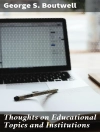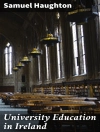In ‘Lectures on Modern History’ by John Emerich Edward Dalberg Acton Baron Acton, readers are taken on a profound journey through the significant events and developments that have shaped the modern world. Acton’s meticulous attention to detail and insightful analysis showcase his deep understanding of history, making this book a valuable resource for those looking to grasp the intricacies of the past. The literary style of Acton is characterized by eloquence and depth, ensuring that readers are engaged and enlightened throughout the text. The book’s literary context lies in Acton’s desire to provide a comprehensive and critical examination of modern history, shedding light on key moments and figures that have left a lasting impact on society. From political revolutions to cultural movements, Acton covers a wide range of topics with precision and clarity. As a prominent historian and scholar, John Emerich Edward Dalberg Acton Baron Acton’s background and intellectual pursuits have undoubtedly influenced his decision to delve into the complexities of modern history. His commitment to uncovering the truths of the past and presenting them in a compelling manner reflects his dedication to the field of historical studies. Acton’s vast knowledge and expertise shine through in ‘Lectures on Modern History, ‘ making it a must-read for anyone interested in gaining a deeper understanding of the modern world. I highly recommend ‘Lectures on Modern History’ to history enthusiasts, students, and academics alike. Acton’s insightful analysis and engaging writing style make this book a valuable contribution to the study of modern history, offering readers a fresh perspective on the events that have shaped our present-day society.
A propos de l’auteur
John Emerich Edward Dalberg Acton, better known as Baron Acton, was a preeminent Victorian historian, deeply erudite and known for his profound ethical judgment on the use of power. Born on January 10, 1834, and educated at Munich under the historian Dollinger, Acton became a key figure in liberal Catholicism and an advocate for the principles of freedom and morality in history. His erudition was vast, encompassing a breadth of knowledge that shaped his perspective on historical events. Acton was particularly intrigued by the interplay of liberty and authority, a theme he explored extensively throughout his scholarly career. His seminal work, ‘Lectures on Modern History’, delivered at Cambridge and published posthumously in 1906, offered insightful analysis on the development of modern states and the nature of historical inquiry. Acton’s literary style combined precision with a moral imperative, emphasizing the duty of historians to judge the past and the need for moral criteria in assessing historical actors. His works remain essential reading for students of history, providing both a methodological framework and a moral compass for understanding the complexities of human society and governance (Acton, 1906). An enduring legacy is also found in his oft-quoted maxim, ‘Power tends to corrupt, and absolute power corrupts absolutely’, a testament to his belief in the necessity of limits on authority and the permanence of moral standards in public life.












